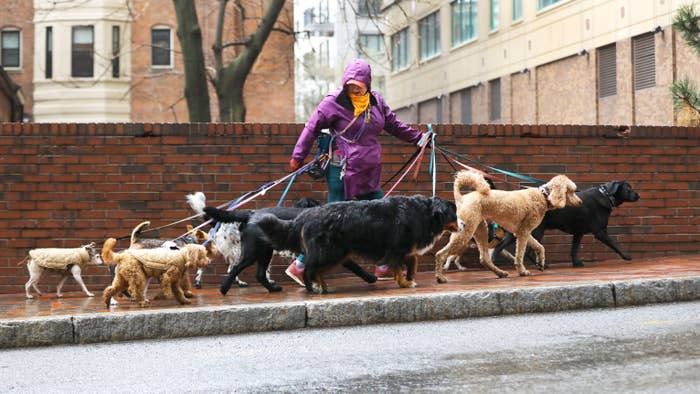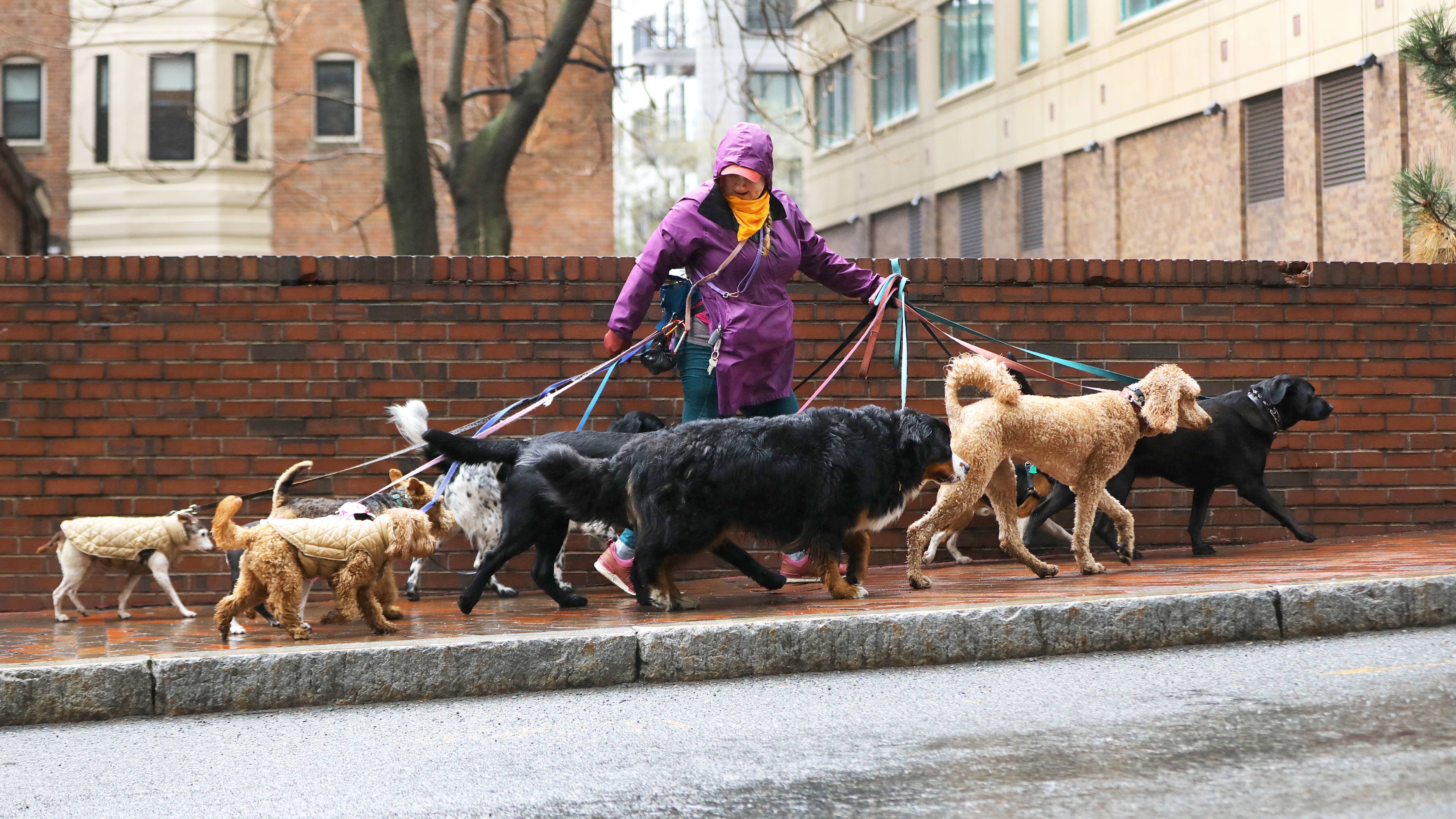
A pug named Winston has become the first known U.S. canine to test positive for the novel coronavirus.
According to WRAL, the virus was detected this month during a study at Duke University. Winston's owners, the McLean family, participated in the school's coronavirus research study at the beginning of April, after the parents began exhibiting mild symptoms in mid-March. Researchers determined the mother, father, and son had tested positive for the potentially fatal disease, while their daughter, Sydney, was the only family member who did not get infected. Researchers also conducted tests on the McLean's two dogs and cat; Winston was the only pet to test positive, and had reportedly shown symptoms in the days leading up to his diagnosis.
"Pugs are a little unusual in that they cough and sneeze in a very strange way," said the family's mother Heather McLean, a pediatrician at Duke. "So it almost seems like he was gagging, and there was one day when he didn’t want to eat his breakfast, and if you know pugs you know they love to eat, so that seemed very unusual."
Dr. Chris Woods, the principal investigator of the study, said he believes Winston is the first dog to test positive for the virus in the U.S.; however, Chinese researchers have reported two canines had contracted the disease in Hong Kong last month. Since then, tigers at the Bronx Zoo have also tested positive for COVID-19, as have two house cats in New York.
The Centers for Disease Control and Prevention has acknowledged COVID-19 infections among family pets, and has advised the public to take precautionary measures when dealing with a coronavirus-infected animal.
"CDC is aware of a small number of pets, including cats and dogs, reportedexternal icon to be infected with the virus that causes COVID-19, mostly after close contact with people with COVID-19," the federal agency wrote earlier this month. "Treat pets as you would other human family members — do not let pets interact with people or animals outside the household. If a person inside the household becomes sick, isolate that person from everyone else, including pets. Further studies are needed to understand if and how different animals could be affected by the virus that causes COVID-19 and the role animals may play in the spread of COVID-19."
Though there are still a lot of questions surrounding the virus and its impact on pets, the McLean's son, Ben has an idea of how the pug became infected.
"(The dog) licks all of our dinner plates and sleeps in my mom’s bed, and we’re the ones who put our faces into his face," he said. "So, it makes sense that he got (coronavirus)."
According to USA Today, the McLeans and Winston have fully recovered.

